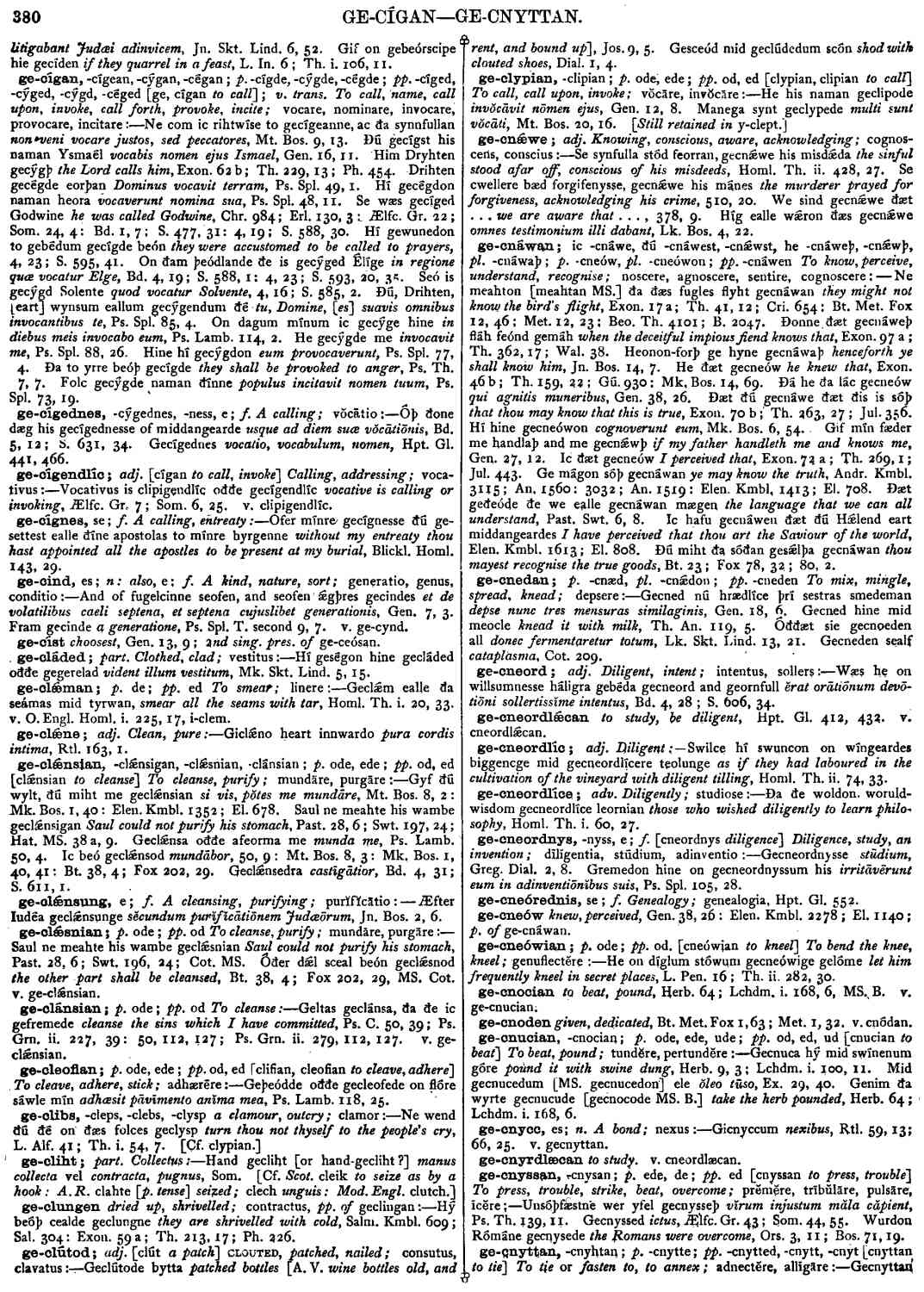ge-cnáwan
- verb [ strong ]
-
Ne meahton [meahtan MS.] ða ðæs fugles flyht gecnáwan
they might not know the bird's flight,
- Exon. 17 a; Th. 41, 12 ;
- Cri. 654 :
- Bt. Met. Fox 12, 46 ;
- Met. 12, 23 ;
- Beo. Th. 4101 ;
- B. 2047 .
-
Ðonne ðæt gecnáweþ fláh feónd gemáh
when the deceitful impious fiend knows that,
- Exon. 97 a; Th. 362, 17 ;
- Wal. 38 .
-
Heonon-forþ ge hyne gecnáwaþ
henceforth ye shall know him,
- Jn. Bos. 14, 7 .
-
He ðæt gecneów
he knew that,
- Exon. 46 b; Th. 159, 22 ;
- Gú. 930 :
- Mk, Bos. 14, 69 .
-
Ðá he ða lác gecneów
qui agnitis muneribus,
- Gen. 38, 26 .
-
Ðæt ðú gecnáwe ðæt ðis is sóþ
that thou may know that this is true,
- Exon. 70 b; Th. 263, 27 ;
- Jul. 356 .
-
Hí hine gecneówon
cognoverunt eum,
- Mk. Bos. 6, 54 .
-
Gif mín fæder me handlaþ and me gecnǽwþ
if my father handleth me and knows me,
- Gen. 27, 12 .
-
Ic ðæt gecneów
I perceived that,
- Exon.72 a; Th. 269, 1 ;
- Jul. 443 .
-
Ge mágon sóþ gecnáwan
ye may know the truth,
- Andr. Kmbl. 3115 ;
- An, 1560 : 3032 ;
- An. 1519 :
- Elen. Kmbl, 1413 ;
- El. 708 .
-
Ðæt geðeóde ðe we ealle gecnáwan mægen
the language that we can all understand,
- Past. Swt. 6, 8 .
-
Ic hafu gecnáwen ðæt ðú Hǽlend eart middangeardes
I have perceived that thou art the Saviour of the world,
- Elen. Kmbl. 1613 ;
- El. 808 .
-
Ðú miht ða sóðan gesǽlþa gecnáwan
thou mayest recognise the true goods,
- Bt. 23; Fox 78, 32; 80, 2 .
Bosworth, Joseph. “ge-cnáwan.” In An Anglo-Saxon Dictionary Online, edited by Thomas Northcote Toller, Christ Sean, and Ondřej Tichy. Prague: Faculty of Arts, Charles University, 2014. https://bosworthtoller.com/13918.
Checked: 1